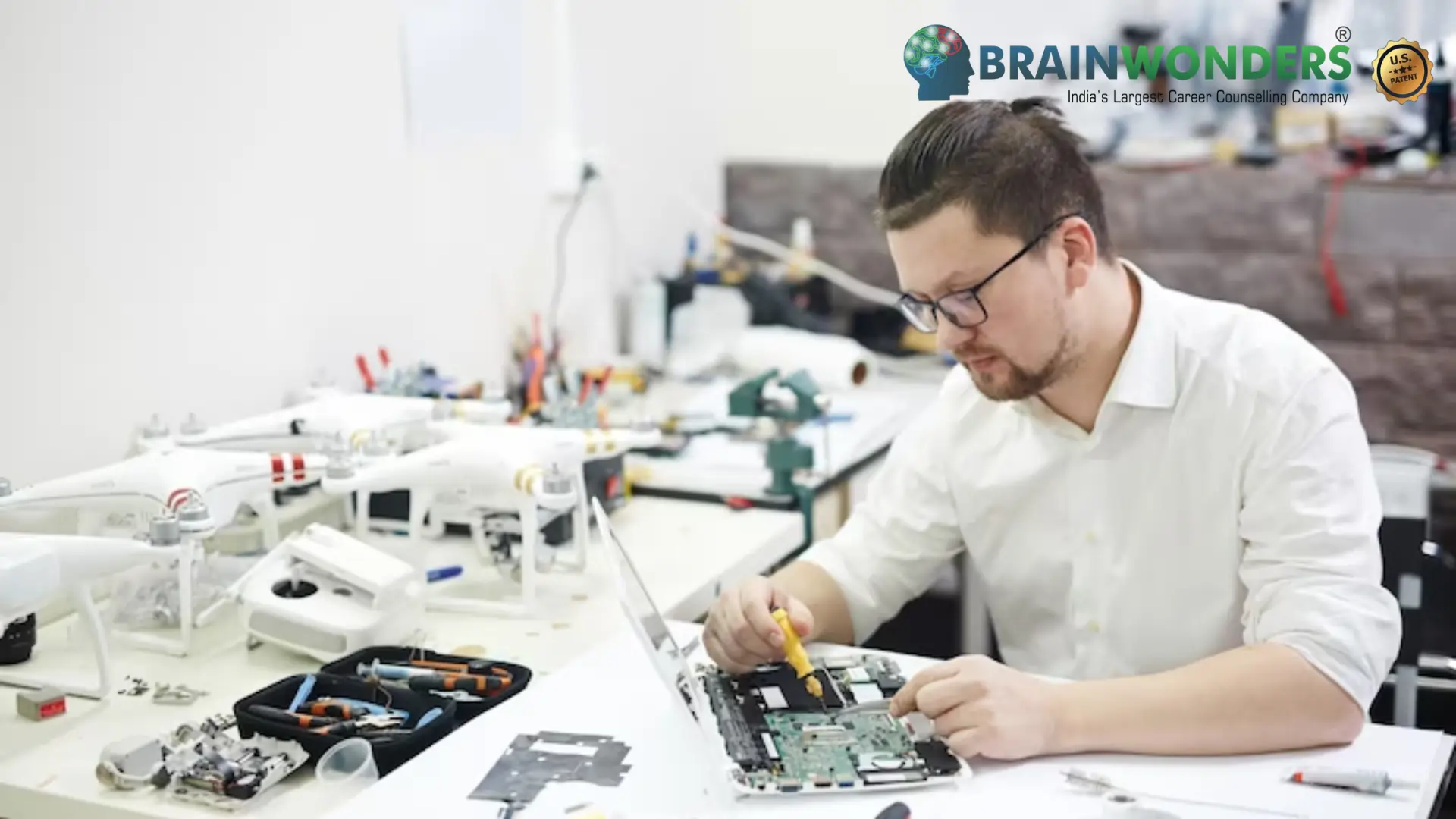How to become a Diploma Electronic
Overview, Courses, Exam, Colleges, Pathways, Salary

Overview
Who is Diploma Electronic ?
Electronic engineers design, develop, and test electrically powered components, devices, systems, and equipment. They can be involved at any level of a project, from the first idea brief to the design and development stage, prototype testing, and final manufacturing and deployment of a new product or system. They collaborate in project teams with colleagues from various technical disciplines. Communication systems, power generators, motors, and navigation systems, as well as automobile and aircraft electrical systems, are all designed, developed, and tested by electronics engineers. They're also responsible for managing the manufacturing of numerous devices, systems, and equipment.
Typical day at work
What does Diploma Electronic do?
- They can work as electronics technicians, assisting in installing, maintaining, and repairing electronic systems and equipment.
- They may also work as electronic design technicians, assisting in developing and testing electronic circuits and systems.
- Other roles include quality control technicians, who ensure product quality and compliance with standards, and technical support specialists, assisting customers with electronic devices and systems.
- Diploma Electronic graduates may also work in manufacturing, research and development, telecommunications, or automation industries, contributing to the design and production of electronic components and systems.
Abilities and Aptitude needed
What are the skills, abilities & aptitude needed to become Diploma Electronic?
They possess a high degree of technological expertise and computer abilities. To enhance designs, they require excellent analytical and problem-solving skills. Oral, written, and diagrammatic communication abilities are required, as well as the capacity to transform complicated ideas into understandable concepts. They also require creativity, ingenuity, and meticulous attention to detail, as well as strategic thinking and commercial understanding of the business. To administer a programme, they also need organisational, project management, and leadership abilities. They must be familiar with electrical health and safety regulations.
Pathways
How to become an Diploma Electronic?
Entrance Exam
Entrance Exam for Diploma Electronic ?
Courses
Which course I can pursue?
Best Colleges
Which are the best colleges to attend to become an Diploma Electronic?
Industries
Which Industries are open for Diploma Electronic?
- Electronics manufacturing companies
- Telecommunications companies
- Consumer electronics companies, and semiconductor firms
- Research and development organization
- Engineering consulting firms
- Government agencies
internship
Are there internships available for Diploma Electronic?
Internship opportunities are available for individuals pursuing a career as a Diploma Electronic graduate. Gain hands-on experience in electronic design, testing, and troubleshooting. Assist in the assembly and installation of electronic components and systems. Learn to use electronic testing equipment, analyze data, and contribute to developing electronic projects. Develop skills in problem-solving, teamwork, and communication. Collaborate with experienced professionals to gain practical knowledge and enhance your technical skills.
Career outlook
What does the future look like for Diploma Electronic?
Electrical engineers are employed by the electrical and electronics industries, which include robotics, digital technology, automotive, telecommunications, electronics consultancies, and electronic equipment manufacturers, as well as other engineering industries, including aerospace, energy, chemical, and marine non-electrical organisations, such as computer system implementation and maintenance, telecommunications, and other technical equipment utility companies. They also work in university and commercial research institutions. They work for government agencies such as the Civil Service, local governments, hospitals, and educational institutions, as well as government ministries such as the Ministry of Defense.



